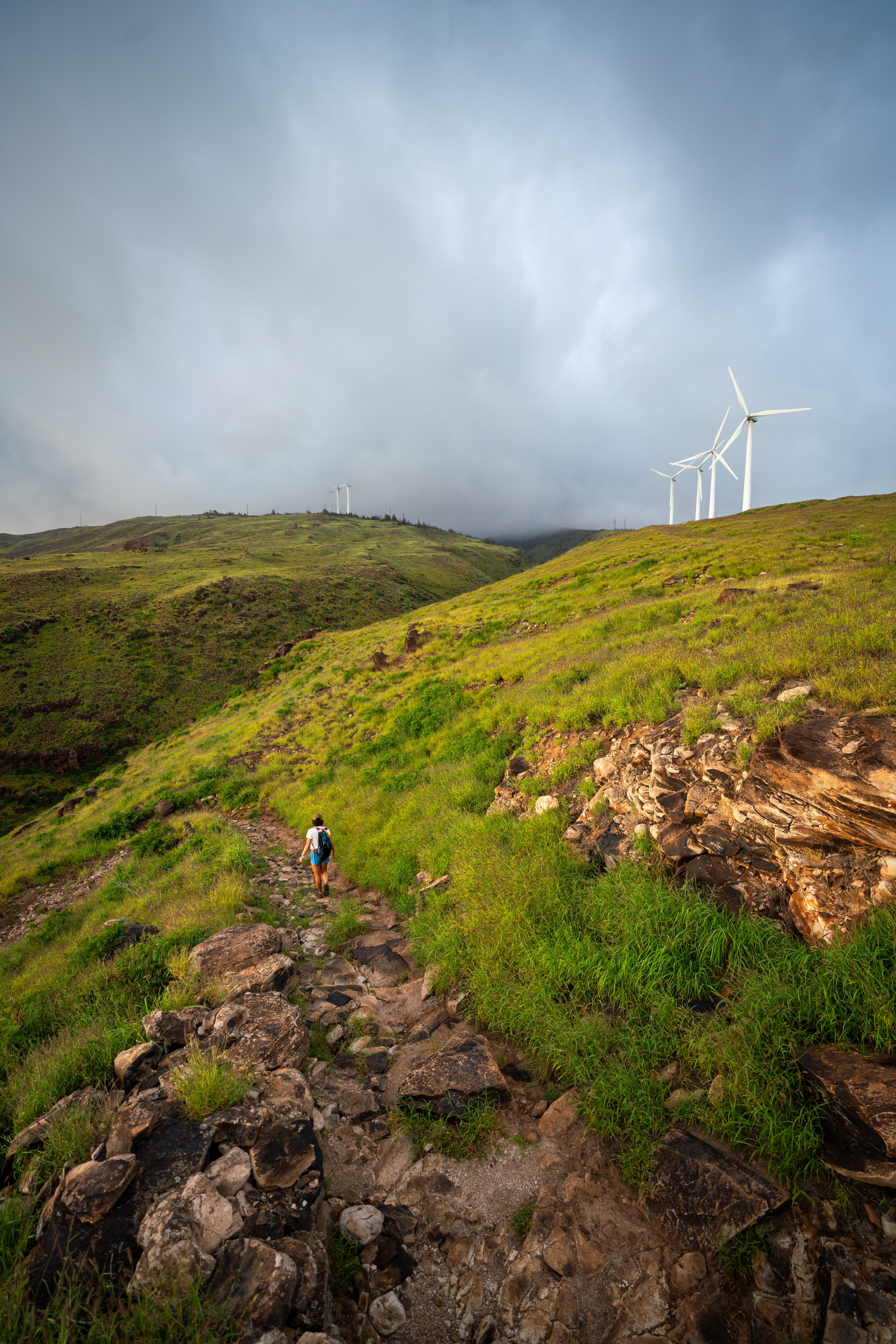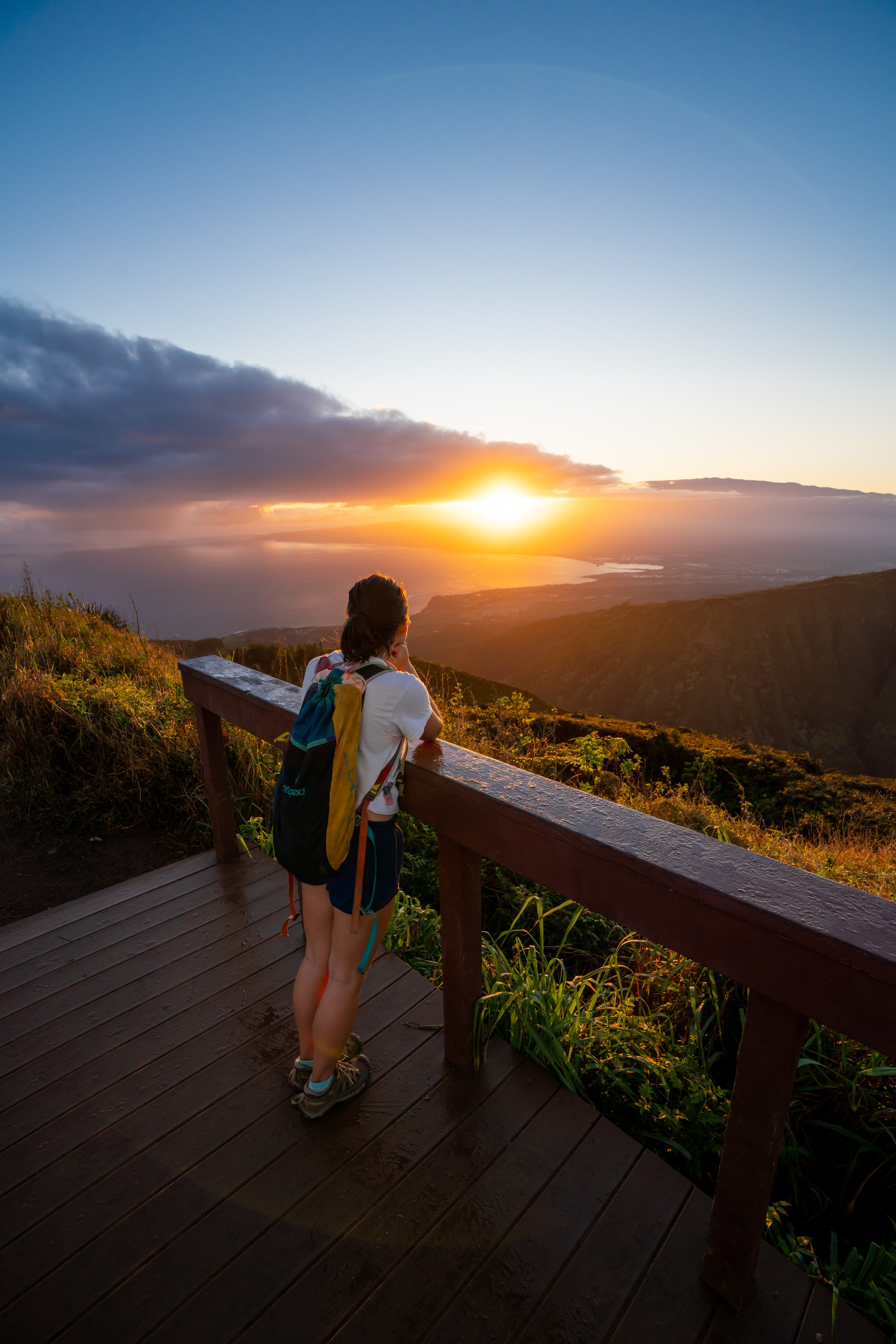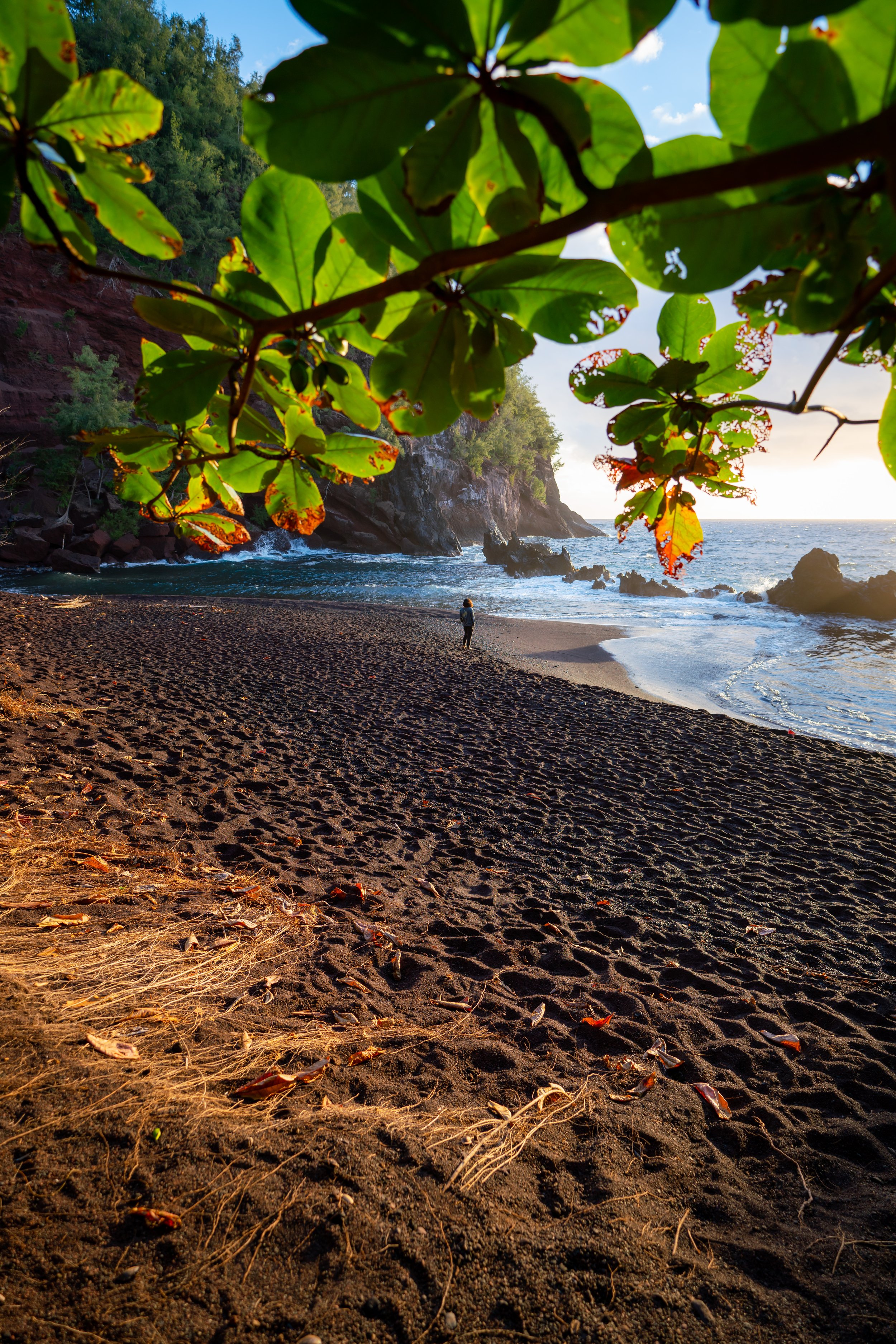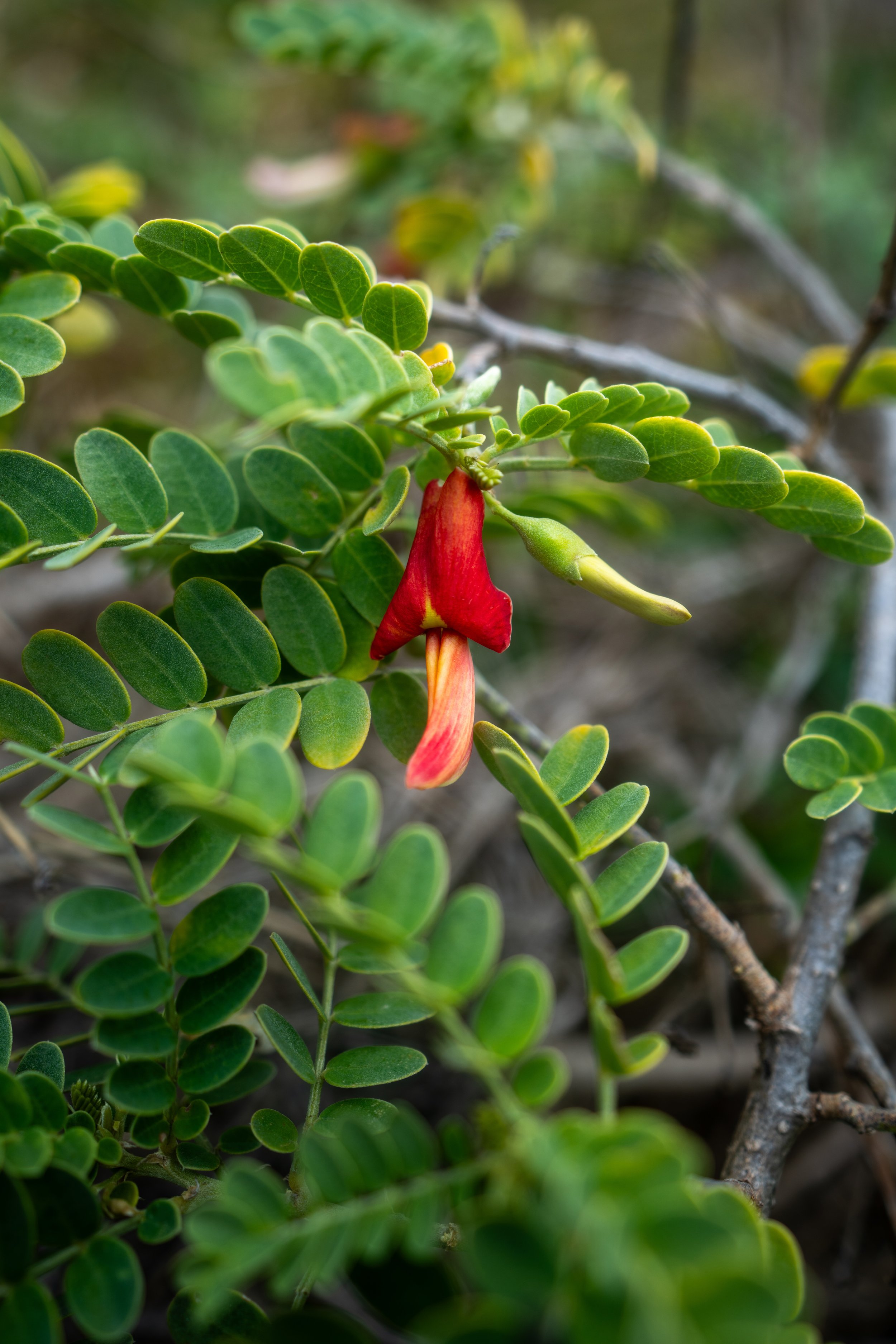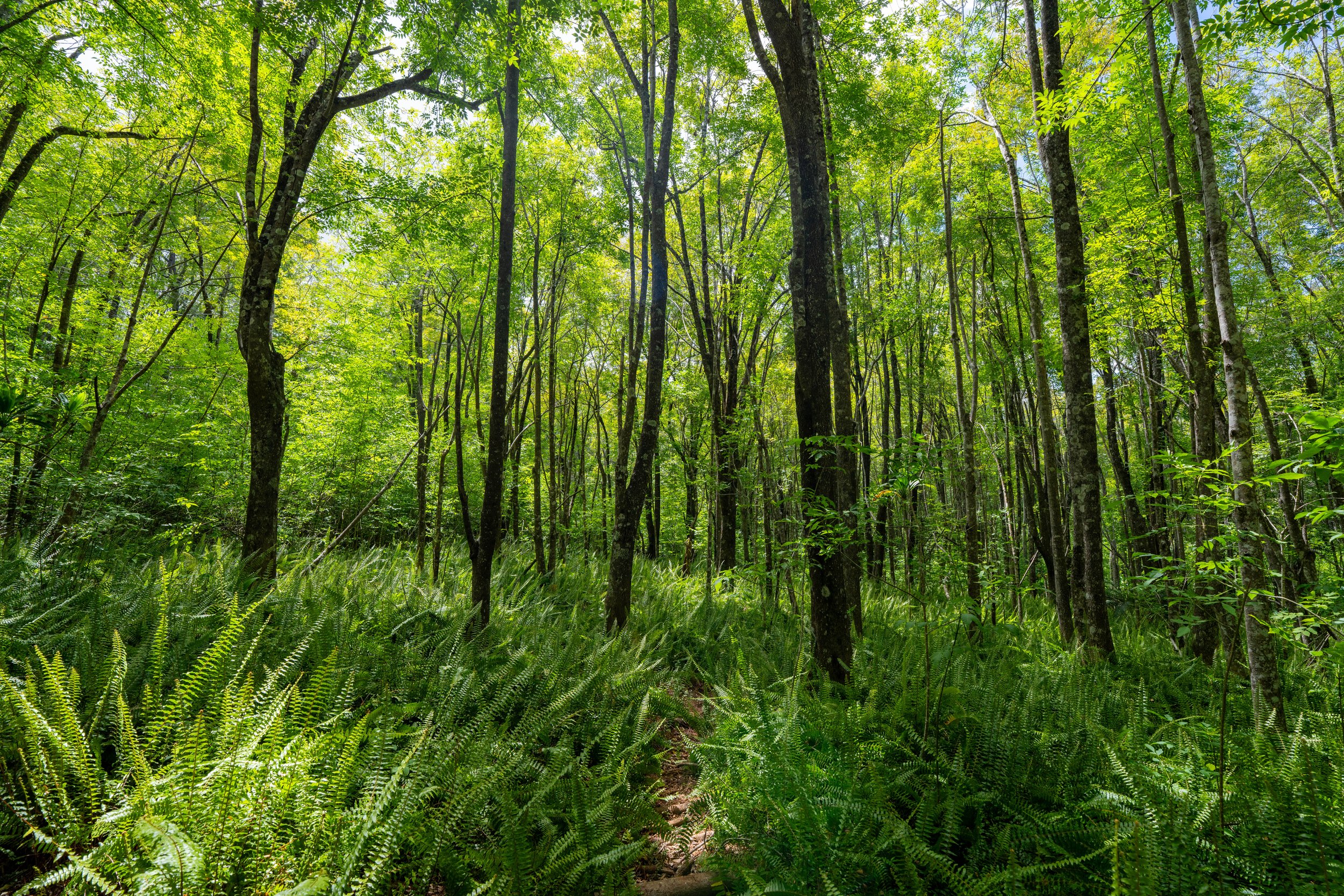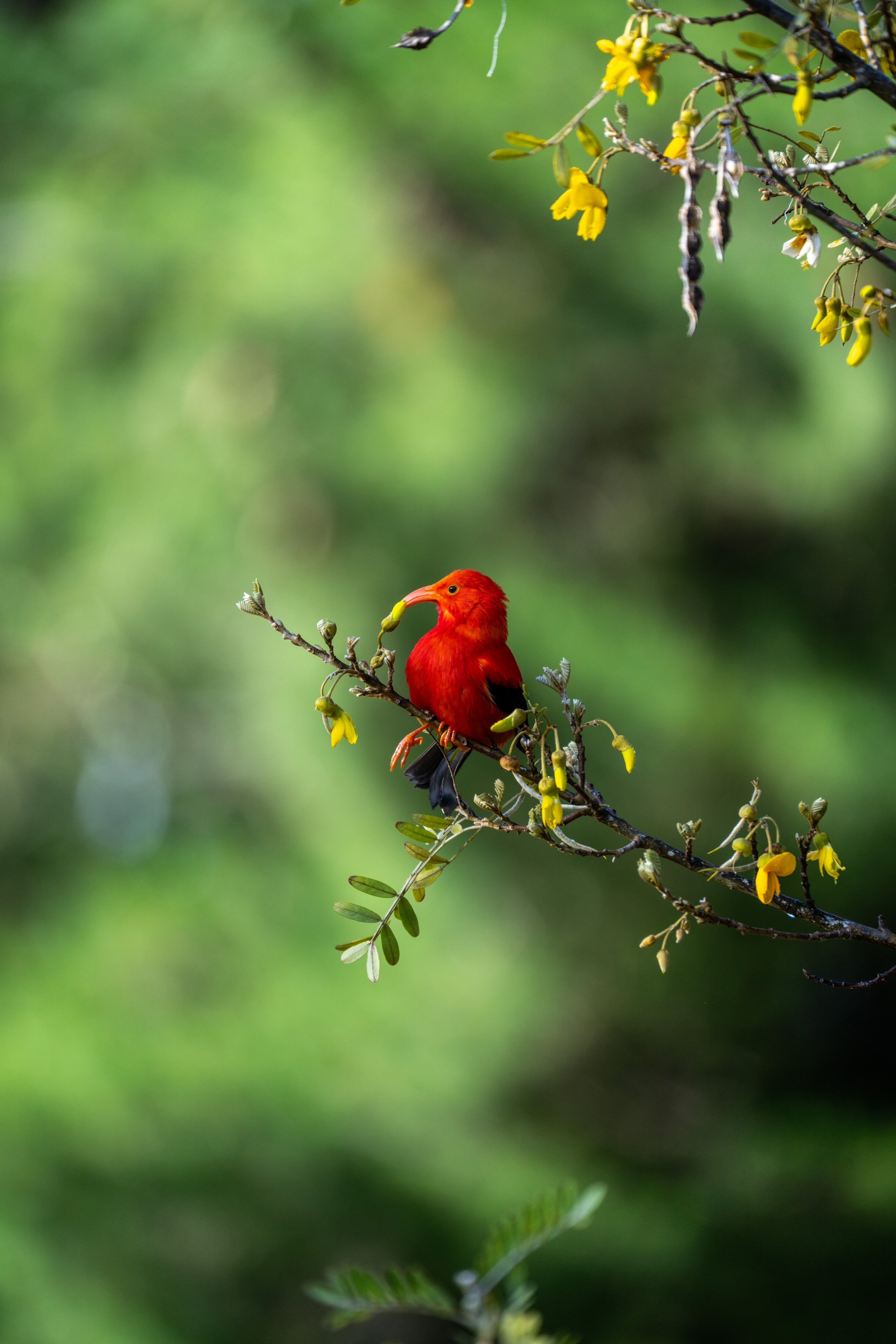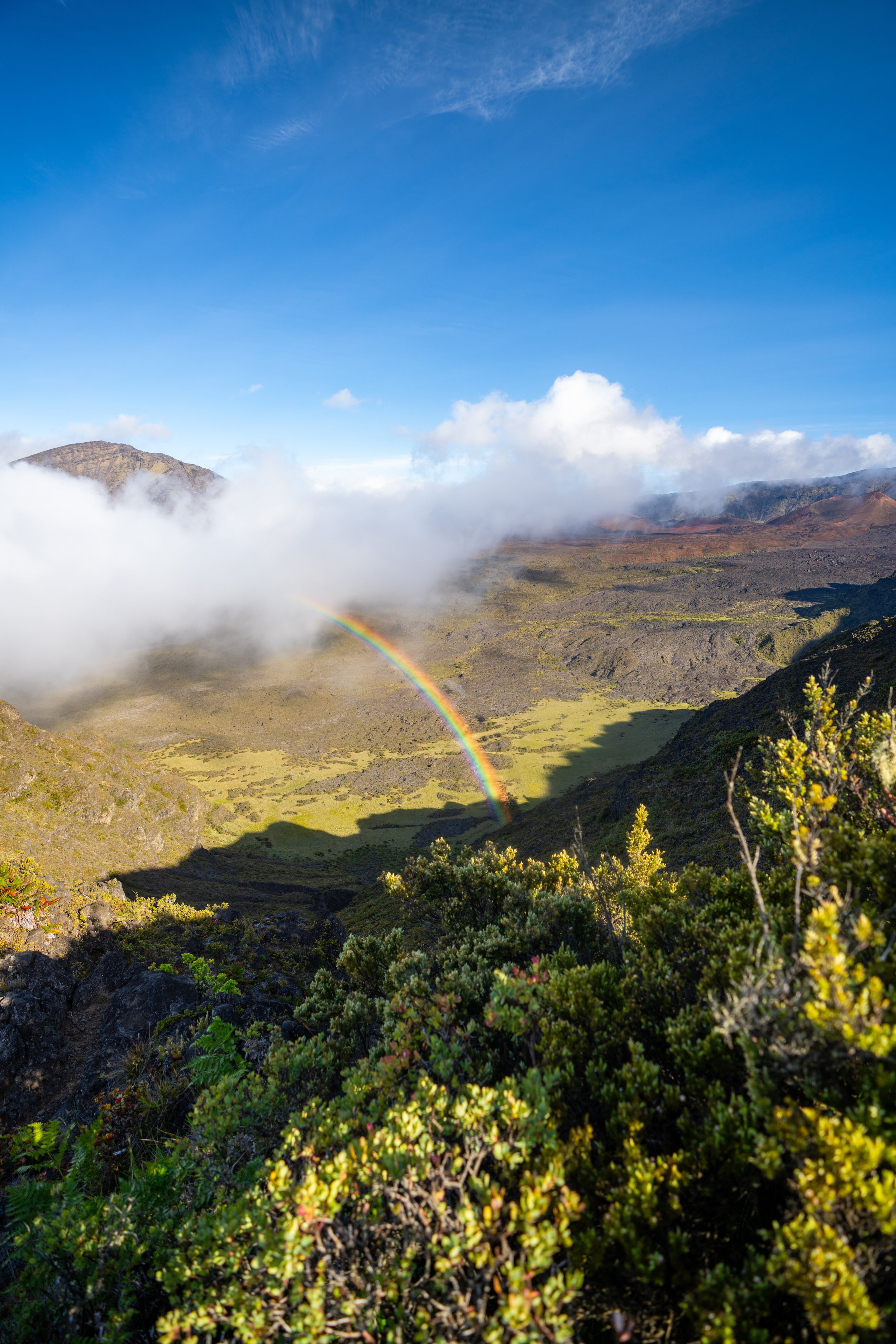Hiking the Polipoli-Haleakalā Ridge-Plum-Redwood Loop Trail on Maui, Hawaiʻi
Distance: 4.9 miles / 7.9 km
Sitting high on the cool slopes of Haleakalā, the Kula Forest Reserve, as well as the Polipoli Spring State Recreation Area, is without a doubt one of the most beautiful places on Maui!
The vast Kula Forest Reserve is best known for all of its interconnecting trails, which is exactly why the Polipoli-Haleakalā Ridge-Plum-Redwood Loop Trail goes by such a long name; as it’s very popular to link multiple trails into one long adventure, while starting and ending at the same trailhead.
With that in mind, the Polipoli-Plum-Redwood Loop Trail is only one of a number of different loops that can be created in the Kula Forest Reserve. Nevertheless, this post will, at the least, help to show a number of different trail connections, so that you can make your own adventure out of this vast network of trails!
Getting to the Trailhead
On average, the Kula Forest Reserve is located at around 6,200 ft. (1,890 m), climbing 21 switchbacks up Waipoli Road on the slopes of Haleakalā.
That being said, access into the Kula Forest Reserve is made possible through a public-private partnership with the owners of the land that Waipoli Road passes through. Therefore, I ask that you please be respectful, so that access to this beautiful forest can continue to remain open!
After ascending the 21 switchbacks to get up to the Kula Forest Reserve, the pavement ends and the 4x4 road begins.
However, Waipoli Road, also called the Waipoli Access Road, is not nearly as challenging as other four-wheel drive roads on the island, but the Department of Land and Natural Resources has numerous warnings posted about continuing without such a vehicle.
When the road splits, go right for the Polipoli State Recreation Area, which is also the parking area for the Polipoli-Redwood Trailhead.
The road to the left is where Waipoli Road turns into the Skyline Trail that ascends up to the summit of Haleakalā, and it’s also a drive that absolutely requires a high-clearance 4x4 vehicle!
Polipoli Spring State Recreation Area Parking
Regardless of which direction you choose to hike the loop, the Polipoli Spring State Recreation Area is the place to park for either trailhead.
Furthermore, please be respectful of any campers who may also be utilizing the same area.
Google Maps Directions: Polipoli Spring State Recreation Area
Hiking the Polipoli-Haleakalā Ridge-Plum-Redwood Trail
In terms of direction, it doesn’t matter whether you begin on the Polipoli or Redwood Trail, as both begin by hiking downhill from the Polipoli State Recreation Area.
That being said, deciding which direction to begin the hike should, in my opinion, come down to one factor.
Would you rather ascend on a shorter but steeper trail, getting all of the elevation gain out of the way at once, or would you rather hike up on a longer, more gradual ascent back to the recreation area?
Personally, I prefer the shorter but steeper ascent, which is why I chose to begin on the Polipoli Trail in the clockwise direction. By going this way, I climb all of the elevation back up to Waipoli Road on the shorter Redwood Trail, while enjoying a casual, mostly downhill hike by beginning on the Polipoli Trail.
Overall, the Polipoli Trail is only 0.6 miles (1.0 km) long and follows a fairly easy graded trail over to Haleakalā Ridge.
Polipoli-Haleakalā Ridge Junction
After 0.6 miles (1.0 km), the Polipoli Trail ends where the Haleakalā Ridge Trail begins.
Go right to continue on the loop, and this is where the trail will noticeably begin its descent that continues for much of the hike until the start of the Redwood Trail.
In an otherwise non-native, invasive forest, it’s nice to see endemics like ʻĀkala, the Hawaiian Raspberry, coming through!
Haleakalā Ridge-Plum Junction
This is where the Haleakalā Ridge Trail ends, and the Plum Trail begins.
However, it’s not much of a junction, as there is no split in the trail like others along the loop. Rather, if these signs weren’t here, the trail would simply continue straight, essentially making no difference what the trail is named.
As the clouds began to roll up the slopes of Haleakalā, it started to create the most beautiful conditions for some moody photos!
ʻAmaʻu is another beautiful endemic that can be found growing along the sides of the trail.
I can’t say for sure what this fence was for, but it’s clearly not for ungulates, as boars can be found roaming throughout the Kula Forest Reserve.
With that in mind, hunters tend to frequent Polipoli and other forest reserves on Maui, which is why it’s important to wear bright clothes as you hike.
Plum-Tie Junction
At about 2.6 miles (4.2 km), the Polipoli-Plum-Redwood Loop Trail passes the first of two junctions with the Tie Trail.
Essentially, the Tie Trail is a shortcut between the Plum and Redwood Trails, shortening the overall loop by only about 0.2 miles (0.3 km).
That being said, the Tie Trail may be shorter, but it is certainly steeper, as it’s a more direct path up the slopes of Haleakalā up to the Redwood Trail above.
While non-native to Hawaiʻi, these Redwood trees were planted to reforest the Kula State Forest Reserve after many years of ranching decimated the previous Koa-ʻŌhiʻa-Māmane forests that once dominated this landscape.
In fact, to this day, Redwood trees are still being used in Hawaiʻi to help fight against invasive gorse on the Big Island, in an effort to shade it out.
Old Ranger Cabin
This is the first of two old ranger cabins from the late 1800s along the loop that are remnants of the ranching history that once took place here before reforestation began in the early 1900s.
I’d say explore these cabins at your own risk, but these cabins are certainly not somewhere I’d recommend spending the night!
Plum-Redwood-Boundary Junction
Shortly after the first ranger cabin, the Plum Trail ends where the Redwood and Boundary Trails begin.
Go right to begin the Redwood Trail, as the 4.4-mile (7.1 km) Boundary Trail is best hiked as a separate loop off Waipoli Road.
Second Ranger Cabin
Then, just up the trail from the previous junction, the Redwood Trail passes by the second ranger cabin.
Again, it’s not anything like the maintained Polipoli Spring Cabin that can be seen later in this article.
As previously mentioned, the Redwood Trail is the steeper of the two trails to hike back up to Waipoli Road. However, even though this is where the majority of the elevation gain is, the gradual switchbacks are in no way strenuous compared to other Maui trails.
In fact, the full Polipoli-Haleakalā Ridge-Plum-Redwood Loop makes for one of the best trail runs on Maui!
Redwood-Tie Junction
This is the upper Tie Trail junction, the same trail that splits off the Plum Trail down below.
In any case, go left to continue on the Redwood Trail to reach the Polipoli Cabin, located shortly ahead.
Polipoli Cabin
Toward the end of the hike, the loop passes directly by the Polipoli Cabin that can be reserved through the Department of Land and Natural Resources website linked below.
That being said, the Polipoli Cabin is one of the most popular camping areas on Maui, and if it’s booked, I ask that you be respectful of any group that currently has the cabin reserved.
Book Here: Polipoli Cabin
Redwood Trailhead
Next, the Redwood Trail ends at the access road that leads down to the cabin.
At this junction, simply continue up the road to reach Waipoli Road, located shortly ahead.
Waipoli Road
Finally, turn right onto Waipoli Road, where you’ll find the Polipoli Spring State Recreation Area just a short walk away.
Native Plants on the Polipoli-Redwood Loop Trail
Given the long ranching history in the Kula State Forest Reserve, as well as the reforestation of non-native species that ensued, native plants in Polipoli are harder to come by compared to other trails on Maui.
However, that is not to say that native plants can’t be found, as hikers can expect to see ʻŌhiʻa lehua, Māmane, Māmaki, ʻAmaʻu, ʻĀkala, Palapalai, and several Hawaiian Wood Ferns.
If you would like to learn more about these and many other native Hawaiian plants from across the islands, I encourage you to check out my separate post linked below.
Read My Separate Post: Native Hawaiian Plant Guide



